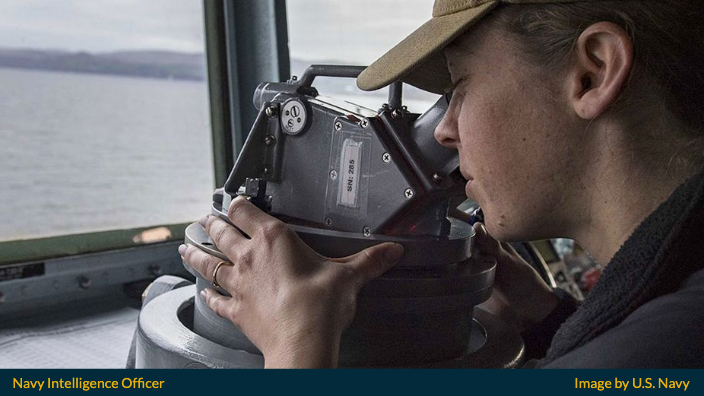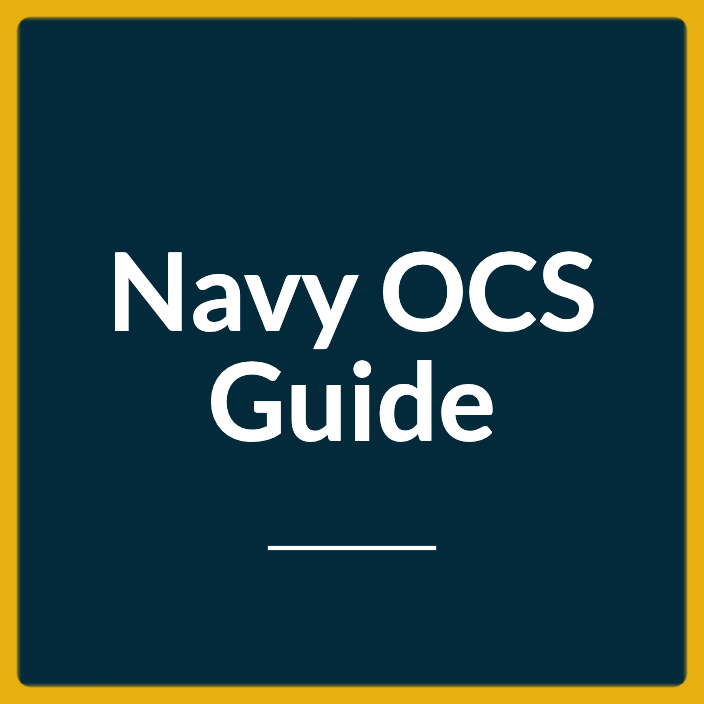Last Updated on August 30, 2023
This guide provides a quick overview of the Navy Intelligence community.
The United States Navy is known for its strength and power, but few people realize the complexity of its intelligence operations. From specializations in military operations to promotion opportunities for naval officers, the Navy has created an extensive system for gathering and analyzing intelligence.
With the help of secure websites and official sources, the U.S. Navy has become a formidable force in gathering data from around the world.
Whether you are a seasoned veteran or an eager novice, this guide will provide you with an in-depth look at how intelligence functions within the U.S. Navy and what career paths are available for those interested in serving their country through intelligence work.
Overview of Intelligence in the Navy
The United States Navy is renowned for its capability to gather, analyze, and act on intelligence. Through the use of specialized personnel, secure websites, and official sources, the Navy has developed a comprehensive system to keep up with the ever-evolving world of international relations.
From both internal and external sources, naval intelligence officers gather information that can help inform strategic decisions. Intelligence Specialists serve as a direct link between the Navy’s decision makers and the data they need to make informed choices.
Advancements in technology have allowed naval intelligence to access data from virtually anywhere in the world. These elements combine to give the U.S. Navy an unparalleled level of insight into global military operations and politics.
Definition of Naval Intelligence
Naval intelligence is the process of gathering, analyzing, and interpreting information related to naval operations, both current and potential. Naval intelligence includes activities such as gathering data from multiple sources and conducting analysis to determine the best courses of action for naval forces.
It also involves monitoring enemy operations and anticipating future enemy activity or changes in tactics or strategy. Naval intelligence may also involve collecting and evaluating data related to allies, neutral parties, terrain, weather conditions and other factors that can affect military activity.
U.S. Department of Defense and the Navy
The United States Department of Defense is the federal agency responsible for providing the nation with military forces to defend its interests and protect its citizens. The Navy, one of the five branches of the Department, is a global force that provides security at sea. Intelligence plays an integral role in this mission by providing strategic guidance and tactical support to inform decision-making processes within the Navy.

Navy intelligence officers are highly trained professionals who make use of sophisticated technology and data analysis techniques to collect information from around the world. They assess threats and develop strategies to ensure that the Navy is prepared for any potential risks or adversaries.
Intelligence specialists are tasked with interpreting collected data and making recommendations based on their findings. This ensures that naval personnel have access to accurate and timely intelligence so they can make informed decisions when carrying out their duties.
Intelligence gathering and analysis is essential in ensuring success in modern warfare. The Navy relies heavily on this capability to protect both its personnel and resources while deploying forces around the world. Without reliable intel, missions could be put in jeopardy because of inadequate information or lack of situational awareness.
It is vital that those involved in navy intelligence take their roles seriously and remain vigilant in their efforts to provide accurate information for commanders to use when making critical decisions.
Role of the Department of Defense
The Department of Defense is the federal agency responsible for providing the United States with military forces to protect its interests and citizens. The role of this agency is to ensure that the nation has a robust defense system capable of responding to any threat or adversary. Through its various branches, including the Navy, Air Force, and Army, the Department of Defense works to provide strategic guidance and tactical support in order to keep Americans safe.
Intelligence plays a key role in this mission, as it can provide invaluable insight into potential threats and adversaries. Navy intelligence officers are highly trained professionals who make use of sophisticated technology and data analysis techniques to collect information from around the world. Their analysis helps inform decision-making processes within the Navy so that commanders have access to accurate information when carrying out their duties.
The Department of Defense is dedicated to protecting America’s interests at home and abroad. Through its commitment to intelligence gathering and analysis, it provides commanders with vital information needed for successful operations. It is clear that intelligence plays an important role in ensuring national security and stability for generations to come.
The U.S. Navy and its Roles in Intelligence
The United States Navy plays a critical role in intelligence gathering and analysis for the Department of Defense. Intelligence officers in the Navy are highly trained professionals who use advanced technology to collect information from around the world.
This information is then analyzed to provide strategic guidance and tactical support for decision-making processes within the Navy. Such analysis helps inform commanders about potential threats and adversaries, ensuring that they have access to accurate intelligence when carrying out their duties.
The Navy’s commitment to intelligence gathering and analysis ensures that national security and stability is maintained by providing commanders with vital information needed for successful operations. It is through this dedication to intelligence that America’s interests at home and abroad are protected, clarifying that intelligence plays an important role in keeping Americans safe both now and in the future.
Military Operations and Specializations
The military is a complex organization, with many operations and specializations. From a logistical standpoint, the military transports troops, supplies, and equipment to their respective destinations. On the operational side of things, the military carries out various missions such as reconnaissance, search and rescue operations, and direct combat.
Each branch of the military has its own distinct set of specializations related to its core mission. For example, the United States Navy specializes in naval warfare, while the U.S. Air Force specializes in air operations. The U.S. Army focuses on ground operations while the U.S. Marines specialize in amphibious warfare and close combat tactics.
Besides these more well-known specialties, there are also many other specialized roles within each branch of service, such as intelligence officers or linguists who provide critical skills that are not widely known but are essential for successful mission completion.
Intelligence officers develop plans to counter potential threats by analyzing intelligence gathered from both open source media and covert sources such as espionage or reconnaissance efforts while linguists provide language translation services which are often invaluable during international negotiations or diplomatic missions abroad.
Intelligence Specialists
Intelligence Specialists are highly trained professionals who serve vital roles in the military. They specialize in gathering and analyzing information from both open and covert sources while also providing critical language translation services. Intelligence Specialists must have an aptitude for quickly understanding complex data and a willingness to take on challenging tasks.
The primary role of an Intelligence Specialist is to provide intelligence analysis that can inform and guide strategic planning, tactical operations, and response planning.
This includes gathering and interpreting a variety of intelligence sources, such as satellite imagery, communications intercepts, human intelligence (HUMINT), signals intelligence (SIGINT), open source media, espionage activities, reconnaissance efforts, etc. Besides this analytical work, Intelligence Specialists may also be tasked with other duties, such as briefing key personnel or conducting research into specific topics or areas of interest.
In order to become an Intelligence Specialist in the military, it is important to have strong interpersonal skills and a sound understanding of the principles of security and counterintelligence operations.
One should possess excellent written communication skills with the ability to understand complex documents quickly and accurately while also being able to effectively communicate their findings clearly.
Operational Intelligence
Operational Intelligence is a vital component of military operations. It is collecting and analyzing information from a variety of sources in order to gain insight into enemy plans, equipment, and tactics. This type of intelligence is crucial for military leaders as it can help them make better decisions during operations and provide the data to plan effective strategies.
The collection of operational intelligence typically includes data from various sources, such as aerial reconnaissance, HUMINT (human intelligence), SIGINT (signals intelligence), open source media, espionage activities, etc. Once gathered, they must analyze this information quickly and accurately in order to identify patterns or trends that may show imminent threats or opportunities that friendly forces could exploit.
Besides gathering and analyzing data, operational intelligence personnel are also responsible for providing detailed briefings on their findings, which can then inform decision makers at the highest levels. They may also need to coordinate with other branches of the military in order to maximize the effectiveness of their efforts. Operational Intelligence personnel must possess strong interpersonal skills besides a thorough understanding of security and counterintelligence operations.
Promotion Opportunities within the U.S. Navy
Promotion opportunities within the U.S. Navy are available to those who show exceptional performance and dedication to their job. While there are no guarantees of promotion, individuals who have served honorably and diligently may be considered for advancement in rank or position.
The Navy offers a variety of career paths, each with its own set of qualifications and requirements. Those looking to move up the ranks will need to complete additional training and education, as well as show a commitment to their job by taking initiative and displaying leadership qualities. Promotion can also depend on experience, personal performance reviews, length of service, and fitness reports from superiors.
The Navy encourages its personnel to take advantage of promotional opportunities that come their way by demonstrating excellence in their current role and seeking new challenges. In addition, those interested in climbing the ladder may benefit from participating in extra-curricular activities such as community outreach programs or professional development courses offered by the Navy or other military organizations.
Career Paths for Naval Officers in Intelligence Work
Intelligence work is a rewarding and challenging career path for officers in the U.S. Navy. Naval officers who specialize in intelligence use their skills to collect, analyze, and disseminate information that helps protect our national security.
Officers interested in working in intelligence may start out as an Intelligence Officer or an Intelligence Specialist. The Intelligence Officer oversees intelligence activities within their assigned unit, such as training personnel and gathering information from various sources. An Intelligence Specialist works directly with data collected from various sources and analyzes it for use by higher-ups.
To qualify for these jobs, officers must complete specialized training and education courses related to intelligence. They must also maintain a high level of physical fitness, excellent communication skills, and proficiency with computers and other technology used by the Navy’s intelligence operations. Officers may also be required to get security clearances to access classified information related to their duties.
A successful career in naval intelligence requires dedication and hard work, but can provide individuals with ample opportunities for advancement and satisfaction gained through helping protect our nation’s interests around the world.
Professional Training Opportunities
The U.S. Navy provides professional training opportunities for officers interested in intelligence work. Through various educational programs, such as the Naval Intelligence Officer Program and the Naval Intelligence Specialist Program, officers can gain knowledge and skills necessary to work in the various aspects of naval intelligence.
These courses provide a comprehensive overview of principles and policies related to gathering and disseminating intelligence in order to protect our national security interests.
Besides technical topics, these courses also cover communication and leadership skills needed for successful intelligence operations. The Navy curriculum gives each student a competitive edge when entering the field of naval intelligence and helps them develop their career.
After completing the coursework, officers receive specialized certifications that will show their qualifications for positions within the Navy’s intelligence community. With these certifications, officers can look forward to challenging assignments with the potential for advancement as they build their careers in this important field of service.


